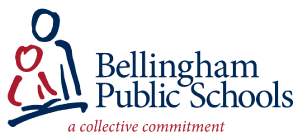We work hard to ensure our schools are safe, welcoming places for all students and families to learn and thrive. Parents and school personnel can help children feel safe by establishing a sense of normalcy and security and talking with them about their fears. No matter how old your kids are, threatening or upsetting news can affect them emotionally. What can you do as a parent to help your kids process information that can be unsettling? Here are some tips to help with family conversations at home.
Resources for talking with children
- : Common Sense Media gathers tips and conversation starters to help you talk to kids of different ages about the toughest topics.
- : UNICEF’s guide offers eight tips to support and comfort your children.
- : Learning for Justice offers recommendations and resources to help guide conversations with young people and to manage potential subsequent actions and reactions.
- from Learning for Justice
The Impact of Online Traumatic Videos and Images
- (CNN)
- : VeryWell Family explores ways families can speak with young people about war, including tips on sharing information and restricting media coverage.
- : This article from the American Psychological Association can help adults guide their young children beyond fear and to resilience.
- : The American Psychological Association provides tips and strategies for parents and teachers of middle school-aged children.
- : Lessons from Facing History & Ourselves to help deepen our understanding of how choices and actions shape a better, more equitable future.
Finding credible sources of information:
- (Common Sense Media)
- (Common Sense Media)
- (Boston Children's Digital Wellness Lab)
��from a community of educators committed to diversity, equity and justice
Learning about Antisemitism
Learning about white privilege
��from the National Museum of African American History and Culture
��(��������)
��(��������)
Learning about Islamophobia
(National Child Traumatic Stress Network)
(Learning for Justice lesson plan)
https://www.rainn.org/articles/talking-your-kids-about-sexual-assault
Para leer en Español,��.
We work hard to ensure our schools are safe, welcoming places for all students and families to learn and thrive. Parents and school personnel can help children feel safe by establishing a sense of normalcy and security and talking with them about their fears. No matter how old your kids are, threatening or upsetting news can affect them emotionally. What can you do as an educator or parent to help your kids process information that can be unsettling? Below are some tips to help with conversations. will take you to a special toolkit for identifying and supporting children who have been exposed to traumatic events.
Your kids will look to the way you handle the news to determine their own approach. If you stay calm and rational, they will, too.
Make time to talk.��
Let their questions be your guide as to how much information to provide. Be patient; children and youth do not always talk about their feelings readily. Watch for clues that they may want to talk. Young children may need concrete activities (such as drawing, looking at picture books, or imaginative play) to help them identify and express their feelings.
Keep your explanations developmentally appropriate.
Early elementary school��– provide simple information balanced by assurance of safety.
Upper elementary and early middle school��– answer questions and assist in separating reality from fantasy.
Upper middle school and high school��– students will have strong and varying opinions about the causes of violence in schools and society. Emphasize student role in safety and how to access support.
Review safety procedures.
This should include procedures and safeguards at school and at home. Help children identify at least one adult at school and in the community to whom they go if they feel threatened or at risk.
Observe children’s emotional state.
Some children may not express their concerns verbally. Changes in behavior, appetite, and sleep patterns can also indicate a child’s level of anxiety or discomfort. Seek the help of mental health professional if you are at all concerned.
Maintain a normal routine.��
Keeping to a regular schedule can be reassuring and promote physical and mental health. Encourage them to keep up with their schoolwork and extracurricular activities but don’t push them if they seem overwhelmed. Limit/be aware of media exposure.
offers multiple resources to support youth and families
Northwest Immigrant Rights һ����app (NWIRP)
Northwest Immigrant Rights һ����app promotes justice by defending and advancing the rights of immigrants through direct legal services, systemic advocacy, and community education.
Website:��
Phone:��206.587.4009
Colectiva Legal del Pueblo
Colectiva Legal del Pueblo is a non-hierarchal collective organization founded for and by undocumented immigrants working to build community leadership and power for migrant justice through legal advocacy and education.
Website:
Phone: 206.931.1514
American Immigration Lawyers Association (AILA) Referral Service
AILA is the only legal association in the United States for immigration attorneys. More than 14,000 immigration lawyers are members of AILA.
Website:
Email: ils@aila.org
Skagit Immigrant Rights Council
CCS Family Immigration Service
Website: Email:��skagitIRC@gmail.com
